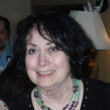Tehanu
(Libby/OverDrive eAudiobook)
Available Platforms
Description
More Details
Also in this Series
Published Reviews
Booklist Review
Le Guin takes her award-winning Earthsea trilogy--A Wizard of Earthsea [BKL Ja 15 69], The Tombs of Atuan [BKL O 15 71], The Farthest Shore [BKL N 1 72]--a disappointing step farther in this fourth and "last" episode. Here Tenar, now a farmer's widow who has taken in a badly burned and abused child, is called to the deathbed of the Mage Ogion, who charges Tenar to teach the child Therru ("That one--they will fear her") and to wait. She stays on in the mage's house after his death, and a dragon flies in with a near-dead Ged on its back. The former antagonists, Tenar and Ged, are together again--Tenar, having repudiated her power years before; Ged, having lost his in battle to save the world. Now, "there is a king in Havnor at the center of the world. What was foretold has been fulfilled. The Rune is healed, and the world is whole. The days of peace have come." Or have they? Though an evil mage puts a binding spell on Tenar and treats her with ugly cruelty, there is little action here, and the story definitely does not stand on its own. However, readers who have come to know Ged and Tenar through their adventures may find satisfaction in seeing them finally settle into quiet, loving comfort together. There's also the chance that the awakening power of the scarred child Therru foreshadows future Earthsea adventures. Gr. 7-10. --Sally Estes
Publisher's Weekly Review
The publication of Tehanu will give lovers of LeGuin's enchanted realm of Earthsea cause for celebration. In Tehanu , LeGuin spins a bittersweet tale of Tenar and Ged, familiar characters from the classic Earthsea trilogy. Tenar, now a widow facing obscurity and loneliness, rescues a badly burned girl from her abusive parents. The girl, it turns out, will be an important power in the new age dawning on Earthsea. Ged, now broken, is learning how to live with the great loss he suffered at the end of the trilogy. Tenar's struggle to protect and nurture a defenseless child and Ged's slow recovery make painful but thrilling reading. Sharply defined characterizations give rich resonance to Tehanu 's themes of aging, feminism and child abuse as well as its emotional chords of grief and loss. Tehanu is a heartbreaking farewell to a world that is passing, and is full of tantalizing hints of the new world to come. Fans of the Earthsea trilogy will be deeply moved. Ages 12-up. (Feb.) (c) Copyright PWxyz, LLC. All rights reserved
School Library Journal Review
Gr 9 Up-- Tenar, once priestess of Atuan and now the middle-aged widow of a Gontish farmer, lives quietly, caring for her foster daughter Therru, a child who has been abused and badly burned by her own parents. Soon there is another who needs Tenar's care; Ged, no longer Archmage of Earthsea, returns to his homeland borne half-conscious on a dragon's back, all his power spent in closing the door between the worlds of Life and Death (as detailed in the climactic scenes of The Farthest Shore Atheneum, 1972). The Kingship has been restored, but there is still evil in the world, and, even as Ged slowly returns to health, Tenar and Therru are threatened. In the end, it is Therru with her unexpected kinship to dragons who turns aside this evil--and raises new questions for readers as to whether Therru is a child, a dragon, or a new type of being entirely. LeGuin's effortless mastery of language will be familiar to readers of the Earthsea Trilogy, but the sweeping otherworldliness of those books has been replaced by a more human focus. The pace is slower, the tone more meditative. The ``power'' of the earlier books was purely an abstract force wielded by wizards--here it also resides in human relationships. In losing his wizard's power, Ged gains the power to return Tenar's love. Newcomers to LeGuin's imagined world may find the story slow going at first; those familiar with Earthsea, however, will rejoice as they enter it once again. --Ruth S. Vose, San Francisco Public Library (c) Copyright 2010. Library Journals LLC, a wholly owned subsidiary of Media Source, Inc. No redistribution permitted.
Horn Book Review
In a tale that takes as its theme the nature of a woman's place and power, the Archmage, Ged, has returned to Gont stripped of his powers. Tenar, the heroine of 'The Tombs of Atuan' (Atheneum) and now a widow, is raising a disfigured and abused child who clearly has an unusual destiny in store. A beautiful expression of mature love; a thoughtful, brilliant achievement. From HORN BOOK 1990, (c) Copyright 2010. The Horn Book, Inc., a wholly owned subsidiary of Media Source, Inc. No redistribution permitted.
Kirkus Book Review
The time is out of joint in Earthsea, but it will not be Ged--seeking a new raison d'etre while grieving his recently lost powers as Archmage and hiding from the animosity of minor wizards--who can set it right. A just, new young king (who was Ged's companion in The Farthest Shore, 1972) has come to the throne, but evil still fills the land: as the story opens, Tenar (the young priestess of The Tombs of Atuan, 1971, Newbery Honor), now the widow of Farmer Flint, adopts a young child (Therru) who has been viciously abused and maimed by her own parents. Together, the king, Tenar, and Therru hold the power and potential of what is to come. Tenar is the central figure--nurturing Ged through his crisis of self-definition and establishing a new, earthly relationship with him; and nourishing the Dragon-child Therru, who springs from a power as ancient, vital, and terrifying as life itself. Yes, there are dragons; but the human story and its meaning are primary here. Unlike Ged's, Le Guin's power is undiminished. She weaves contemporary concerns--the roles of men and women, the theft of resources from and the passage of power to the next generation--into a tale with the universality and dignity of legend. Ged and Tenar are past middle age here, and the action moves slowly as Le Guin explores her themes; but even young readers will be beguiled by the flawless, poetic prose, the philosophy expressed in thoughtful, potent metaphor, and the consummately imagined world. A grand conclusion to a revered cycle. Copyright ©Kirkus Reviews, used with permission.
Publishers Weekly Reviews
The publication of Tehanu will give lovers of LeGuin's enchanted realm of Earthsea cause for celebration. In Tehanu , LeGuin spins a bittersweet tale of Tenar and Ged, familiar characters from the classic Earthsea trilogy. Tenar, now a widow facing obscurity and loneliness, rescues a badly burned girl from her abusive parents. The girl, it turns out, will be an important power in the new age dawning on Earthsea. Ged, now broken, is learning how to live with the great loss he suffered at the end of the trilogy. Tenar's struggle to protect and nurture a defenseless child and Ged's slow recovery make painful but thrilling reading. Sharply defined characterizations give rich resonance to Tehanu 's themes of aging, feminism and child abuse as well as its emotional chords of grief and loss. Tehanu is a heartbreaking farewell to a world that is passing, and is full of tantalizing hints of the new world to come. Fans of the Earthsea trilogy will be deeply moved. Ages 12-up. (Feb.) Copyright 1990 Cahners Business Information.
School Library Journal Reviews
Gr 9 Up-- Tenar, once priestess of Atuan and now the middle-aged widow of a Gontish farmer, lives quietly, caring for her foster daughter Therru, a child who has been abused and badly burned by her own parents. Soon there is another who needs Tenar's care; Ged, no longer Archmage of Earthsea, returns to his homeland borne half-conscious on a dragon's back, all his power spent in closing the door between the worlds of Life and Death (as detailed in the climactic scenes of The Farthest Shore Atheneum, 1972). The Kingship has been restored, but there is still evil in the world, and, even as Ged slowly returns to health, Tenar and Therru are threatened. In the end, it is Therru with her unexpected kinship to dragons who turns aside this evil--and raises new questions for readers as to whether Therru is a child, a dragon, or a new type of being entirely. LeGuin's effortless mastery of language will be familiar to readers of the Earthsea Trilogy, but the sweeping otherworldliness of those books has been replaced by a more human focus. The pace is slower, the tone more meditative. The ``power'' of the earlier books was purely an abstract force wielded by wizards--here it also resides in human relationships. In losing his wizard's power, Ged gains the power to return Tenar's love. Newcomers to LeGuin's imagined world may find the story slow going at first; those familiar with Earthsea, however, will rejoice as they enter it once again. --Ruth S. Vose, San Francisco Public Library Copyright 1990 Cahners Business Information.
Reviews from GoodReads
Citations
Guin, U. K. L., & Sterlin, J. (2016). Tehanu (Unabridged). Recorded Books, Inc..
Chicago / Turabian - Author Date Citation, 17th Edition (style guide)Guin, Ursula K. Le and Jenny Sterlin. 2016. Tehanu. Recorded Books, Inc.
Chicago / Turabian - Humanities (Notes and Bibliography) Citation, 17th Edition (style guide)Guin, Ursula K. Le and Jenny Sterlin. Tehanu Recorded Books, Inc, 2016.
Harvard Citation (style guide)Guin, U. K. L. and Sterlin, J. (2016). Tehanu. Unabridged Recorded Books, Inc.
MLA Citation, 9th Edition (style guide)Guin, Ursula K. Le, and Jenny Sterlin. Tehanu Unabridged, Recorded Books, Inc., 2016.
Copy Details
| Collection | Owned | Available | Number of Holds |
|---|---|---|---|
| Libby | 1 | 0 | 1 |







































